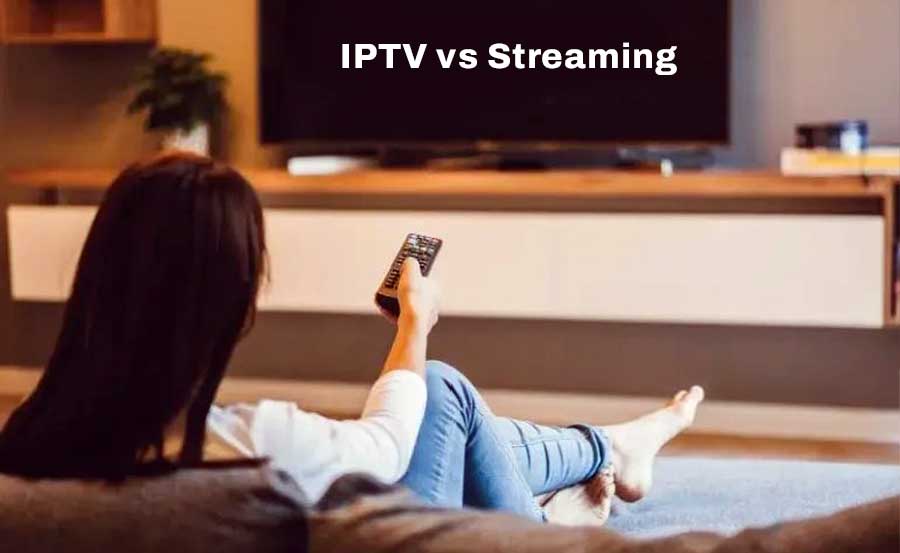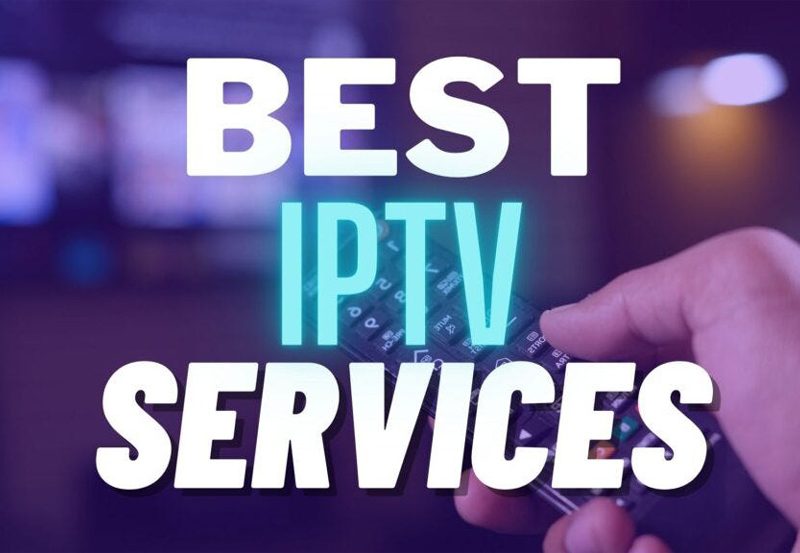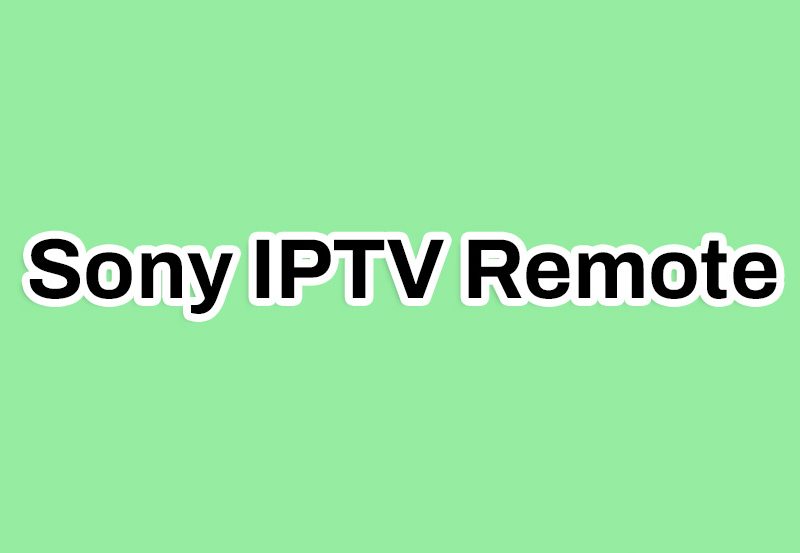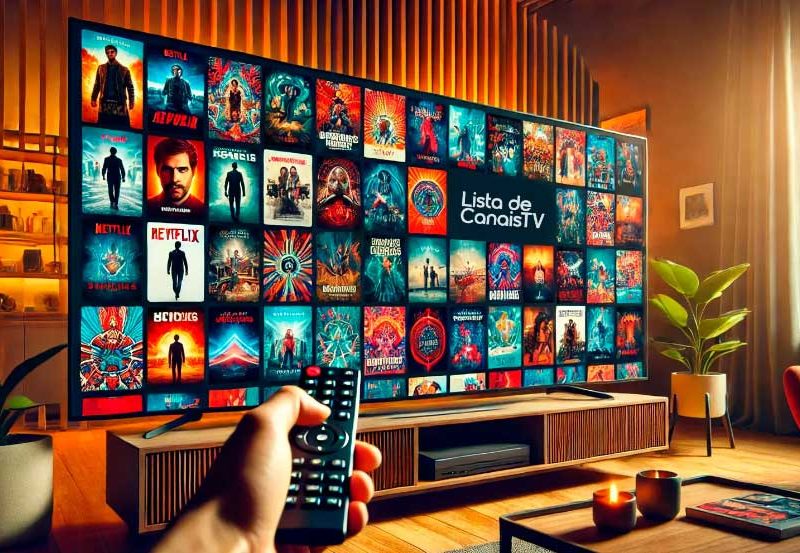Internet Protocol Television (IPTV) and streaming services have become increasingly popular in recent years, but their legality is often misunderstood. IPTV delivers television content via the internet, while streaming services provide on-demand access to a variety of content. The legal status of these services depends on the content source and the user’s location.
Many IPTV and streaming services that offer copyrighted content without proper licensing are considered illegal. This includes unauthorized access to live television channels, movies, and TV shows. However, legal IPTV and streaming services exist, which obtain the necessary licenses to distribute content to subscribers.
Consumers should be aware of the legal implications and ensure they access content through legitimate channels. Laws regarding IPTV and streaming services vary by country. What is legal in one jurisdiction may be illegal in another, making it essential for users to understand the regulations in their specific location.
Furthermore, the legal landscape for these services can evolve as new laws and regulations are introduced. Consumers must stay informed about the legal status of these services to avoid potential legal issues.
Delivery Methods: A Key Difference
IPTV and cable TV are two popular methods of accessing television content, each with its own set of advantages and disadvantages. Cable TV has been a staple in many households for decades, offering a wide range of channels and reliable service. However, IPTV has emerged as a viable alternative, providing access to television content over the internet.
One of the main differences between IPTV and cable TV is the method of delivery. Cable TV relies on physical cables to transmit television signals to subscribers, while IPTV uses internet protocols to deliver content over the internet. This means that IPTV can be accessed on a variety of devices, including smartphones, tablets, and smart TVs, making it more flexible than traditional cable TV.
Cost Comparison: IPTV vs Cable TV
Another key difference between IPTV and cable TV is the cost. Cable TV subscriptions often come with high monthly fees and additional charges for premium channels or on-demand content. In contrast, IPTV services may offer more affordable subscription options and the ability to customize channel packages based on individual preferences.
Content Options: International Channels and More
Additionally, IPTV often provides access to a wider range of international channels and content that may not be available through traditional cable IPTV providers. Ultimately, the choice between IPTV and cable TV depends on individual preferences and needs. While cable TV offers reliability and a wide range of channels, IPTV provides flexibility and cost savings.
The Future of Television: IPTV on the Rise
As technology continues to evolve, it is likely that Gen IPTV will become an increasingly popular choice for accessing television content.
Key Takeaways
- IPTV and streaming services may not always be legal, so it’s important to understand the legality of these services in your region.
- When comparing IPTV and cable TV, consider factors such as cost, channel selection, and flexibility in viewing options.
- There are various streaming services available, each offering different content and features, so it’s important to explore your options before subscribing.
- Internet speed can significantly impact the quality of IPTV and streaming services, so it’s important to have a reliable and fast connection.
- Data caps can limit your ability to enjoy IPTV and streaming services, so it’s important to understand how your data usage may be affected.
Streaming Services: Exploring the Various Options and Offerings Available
Streaming services have revolutionized the way people consume entertainment, offering a vast array of options for accessing movies, TV shows, and original content. From industry giants like Netflix and Amazon Prime Video to niche platforms catering to specific genres or interests, there is no shortage of streaming services to choose from. One of the key benefits of streaming services is the ability to access content on-demand.
Unlike traditional television, which operates on a set schedule, streaming services allow users to watch their favorite shows and movies at any time. This flexibility has made streaming services increasingly popular among consumers who value convenience and control over their viewing experience. In addition to on-demand content, many streaming services also produce original programming exclusive to their platform.
This has led to a surge in high-quality original content, including award-winning TV series and films that are only available through specific streaming services. As a result, many consumers are drawn to streaming platforms for their unique and exclusive offerings. Another advantage of streaming services is the ability to access content across multiple devices.
Whether it’s a smart TV, smartphone, tablet, or computer, streaming services make it easy for users to watch their favorite shows and movies wherever they are. This level of accessibility has made streaming services a popular choice for people with busy lifestyles who want to be able to watch content on the go. With so many options available, consumers have the freedom to choose the streaming services that best align with their preferences and viewing habits.
Whether it’s a focus on original programming, a vast library of classic films, or a specific genre of interest, there is a streaming service out there for everyone.
Internet Speed: How It Affects IPTV and Streaming Services
Internet speed plays a crucial role in the quality of experience when using IPTV and streaming services. The speed of an internet connection directly impacts the ability to stream high-definition content without buffering or interruptions. As such, it is essential for users to have a reliable internet connection with sufficient speed to support their viewing habits.
For IPTV users, a stable internet connection is necessary to ensure smooth delivery of live television channels and on-demand content. Slow or inconsistent internet speeds can result in poor video quality, buffering, and disruptions to the viewing experience. To avoid these issues, it is recommended that IPTV users have an internet connection with a minimum speed of 25 Mbps for high-definition streaming.
Similarly, streaming services also require adequate internet speed to deliver high-quality video content. The recommended internet speed for streaming high-definition video is typically around 5 Mbps, although this can vary depending on the specific service and the quality of the content being streamed. For users who frequently stream 4K Ultra HD content, higher internet speeds are necessary to support the increased bandwidth requirements.
In addition to speed, internet stability is also important for IPTV streaming services. A reliable connection with minimal latency and packet loss is essential for uninterrupted viewing. Users should consider factors such as network congestion, peak usage times, and the quality of their home network setup when assessing their internet connection for IPTV and streaming.
Ultimately, having a fast and stable internet connection is essential for a seamless viewing experience when using IPTV and streaming services. Users should be mindful of their internet speed and take steps to optimize their connection for optimal performance.
If you want buy IPTV
Data Cap: Understanding the Impact of Data Usage on IPTV and Streaming Services
Data caps are limits imposed by internet service providers on the amount of data that can be used within a specific period. For users of IPTV and streaming services, data caps can have a significant impact on their ability to access content without incurring additional charges or experiencing reduced speeds. IPTV users who rely on live television channels and on-demand content may find that their data usage can quickly add up, especially when streaming high-definition video.
This can be particularly problematic for users with data caps, as excessive data usage may result in overage fees or throttling by their internet service provider. As such, it is important for IPTV users to be mindful of their data usage and consider how it aligns with their internet plan. Similarly, streaming services can consume a significant amount of data, particularly when watching high-definition or 4K Ultra HD content.
Users who frequently stream movies and TV shows may find that they reach their data cap quickly, especially if they have multiple devices accessing content simultaneously. This can lead to additional costs or limitations on their ability to stream at higher quality levels. To mitigate the impact of data caps on IPTV and streaming services, users should consider monitoring their data usage and adjusting their viewing habits accordingly.
This may include reducing the quality of video streams, limiting simultaneous streams on multiple devices, or choosing an internet plan with higher data allowances. It is also worth noting that some internet service providers offer unlimited data plans that eliminate data caps altogether. For heavy users of IPTV and streaming services, an unlimited data plan may be a worthwhile investment to ensure uninterrupted access to content without concerns about data usage.
Content Selection: Comparing the Availability of Shows and Movies on IPTV and Streaming Services
Content Options on IPTV
IPTV often provides access to live television channels from around the world, including sports, news, entertainment, and more. This makes it an attractive option for users who want access to traditional broadcast television alongside on-demand content. Additionally, some IPTV providers offer extensive libraries of movies and TV shows that can be accessed at any time, providing a comprehensive selection of entertainment options.
Content Options on Streaming Services
On the other hand, streaming services are known for their vast libraries of on-demand content, including movies, TV shows, documentaries, and original programming. Platforms like Netflix, Amazon Prime Video, Hulu, and Disney+ offer extensive catalogs of content that cater to a wide range of interests and genres. This makes streaming services an appealing choice for users who prefer the flexibility of choosing what they want to watch at any given time.
Another factor that influences content selection is exclusivity. Many streaming services produce original programming that is only available on their platform, creating a unique value proposition for subscribers. This includes award-winning TV series, films, documentaries, and other exclusive content that cannot be accessed through traditional IPTV providers.
Ultimate Choice: IPTV or Streaming Services
Ultimately, the availability of shows and movies on IPTV and streaming services varies based on individual preferences and viewing habits. While IPTV offers live television channels alongside on-demand content, streaming services provide extensive libraries of on-demand entertainment with exclusive original programming.
Cost Comparison: Analyzing the Financial Differences Between IPTV and Streaming Services
Cost is an important consideration for consumers when choosing between IPTV streaming services. Both options have associated expenses that can impact overall affordability and value for money. IPTV subscriptions typically come with monthly fees that vary depending on the provider and the package selected by the user.
Some IPTV providers offer basic packages with a limited number of channels at lower prices, while others provide premium packages with access to a wider range of channels at higher costs. Additionally, there may be additional fees for premium channels or on-demand content that are not included in standard packages. Streaming services also require monthly subscriptions that grant access to their libraries of on-demand content.
The cost of streaming service subscriptions varies depending on the platform and the level of access desired by the user. Some platforms offer tiered pricing with different levels of access or features at varying price points, while others provide a single subscription option with all-inclusive access. In addition to subscription fees, users should also consider other costs associated with IPTV and streaming services.
This may include expenses related to equipment such as set-top boxes or streaming devices, as well as potential costs for additional features or add-ons offered by providers. When comparing the financial differences between IPTV and streaming services, it is important for consumers to consider their individual viewing habits and preferences. While IPTV may offer access to live television channels alongside on-demand content at varying price points, streaming services provide extensive libraries of on-demand entertainment with exclusive original programming at competitive subscription rates.
Ultimately, the cost comparison between IPTV and streaming services depends on factors such as channel selection, content availability, exclusive programming, additional features, and overall value for money based on individual needs.
If you’re interested in learning more about how to set up IPTV on your device, you should check out this article on how to setup IPTV on RIPTV. It provides a step-by-step guide on how to get started with IPTV and make the most out of your streaming experience.





